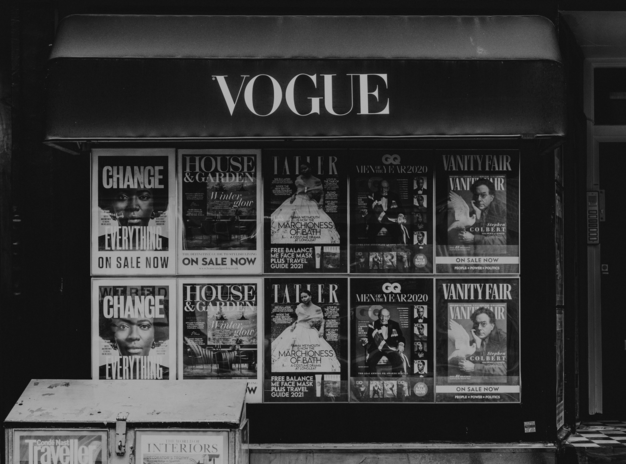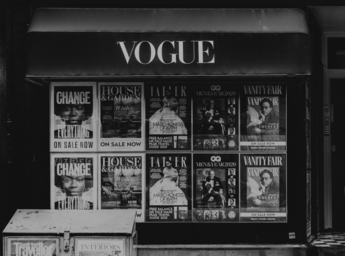According to an article in Vogue, “Science is one breakthrough closer to understanding the brain chemistry behind your intense interest in clothes, and as it turns out, your outfit may alter how you approach and interact with the world” (Elgort, 2000).
The psychology of fashion and identity is a new area of study emerging rapidly. Many young professors like Dawnn Karen have created this avenue for students after experiencing first hand the power of fashion and how it makes us feel. Experiencing how fashion can frame our mentality.
An eye-opening example, given by Dawnn Karen in her Ted Talk titled, “Styling from Inside Out” was the night she was raped by her fiance. She told audiences in her widely acclaimed Ted Talk that after what had happened, she got up the next morning and she put on her best outfit, her most confident, her most identifying, her most free. She discussed in further detail how her clothing and her identity and the strength of both allowed her to frame her day with power rather than recoil. She said the strong identity and freedom that inhabited her clothing, helped her feel the way she needed in order to get through that day.
This example shows the power of our identity and the strength it can give us. Identities are our sense of self. Identities can be formed through the values we collect over time. For example, integrity, grit, grateful-ness, non-conformity, prestige, respect, kindness, fun, and freedom are all values that one may believe makes a person of greatness. If we can illustrate these values in the way we dress, if we find power in the audacity to dress for ourselves, if we find power in the vibrancy of the outfits we craft, we can ignite a great mental strength. If we can illustrate our indifference to the thoughts of others and give power to the decision to decorate ourselves as we’d like, we are strongly self-identified. We are ourselves, and our values, outwardly, confidently, to the world.
I found so much correlation with Dawn’s message. She expressed her clothing as an act of self-love. Something that empowered her mentality, something that’s purpose was for her. Her clothing that day shed light to the worthy, strong and unique person that she is. Regardless of what happened and how powerless she was made to feel, her ability to remain indifferent and just as strong in her clothing as before was an act of showcasing the magnitude of her human-ness. It showcased the magnitude of her independence, identity and the unique and irreplicable person that she was before and after what had happened.
This psychology is not just for those who have been through traumatic experiences, in preliminary findings from a study published on the Journal of Experimental Social Psychology’s website, “subjects who donned white coats that they thought belonged to doctors performed better on tests than those who wore street clothes, or those who thought the coats were associated with artists” (Elgort, 2000). This study exposed that if you have strong cultural associations, placing power in the culture, and meaning of a garment, wearing it may impact your cognitive processes.
Similarly, if your brain links colors, textures, brands, or cuts within clothing to powerful, intelligent women, or men, you’re likely to take on those attributes when you wear it. This phenomenon is called enclothed cognition.
For me, this knowledge made sense in retrospect as I analysed my relationship and identity in association with fashion. I personally had always dressed with power and vibrancy and emotion. I dressed this way to the doctor, to 9th grade Science class, to the grocery store, to the take-out place. Growing up, I felt the association between dressing like I would be someone important one day, and acting and achieving goals associated with that. To dress like this in highschool, had my more conforming friends laughing and challenging me every day. But regardless I smile today because I am so proud of that 17 year old girl. She never dressed for anyone but herself. She never questioned the “success” she associated with, or the way she would constantly believe in herself. It is rewarding to see those who once opposed my determination to make some type of art, some type of feeling or empowering energy in my everyday outfits, replicate me. It is lovely to hear the way I’ve enhanced others’ confidence and freedom through non-conformity, as we have become adults. It is profound to learn the psychology behind my behavior throughout the last 21 years and the enclothed cognition I underwent.
This information is not only valuable to those who wish to discover their own personal freedom to dress for their aspirations, but also those studying the fashion industry. There are opportunities for those connected to fashion and the psychology behind it. If you are interested in these findings, or have a background in business, there are emerging fields in consumer behavior for these types of professionals. Carolyn Mair, PhD, created the psychology of fashion department at the London College of Fashion at the University of the Arts London as well as an undergraduate degree and two master’s degree programs there. She is currently a consultant for fashion brands and author of “The Psychology of Fashion.” Maior talks about her experiences in the industry in an article with the American Psychology Association when she says, “Customers now have fantastic opportunities for competition, for searching online and in-store so the retail companies, fashion retail companies, have to give consumers a fantastic experience and who better to help design a fantastic experience than psychologists” (Mair, 2019).
There is a world surrounding the psychology of fashion, while just now becoming something we put a real name to, the culture surrounding fashion has been long standing. We cannot ignore the power and influence of clothing and brands, nor the magnitude at which they make us feel. The meaning we place behind these garments is sometimes measured in six figure price tags. There is power here, there is meaning and there is a world of psychology that involves even the most reluctant of consumers.


